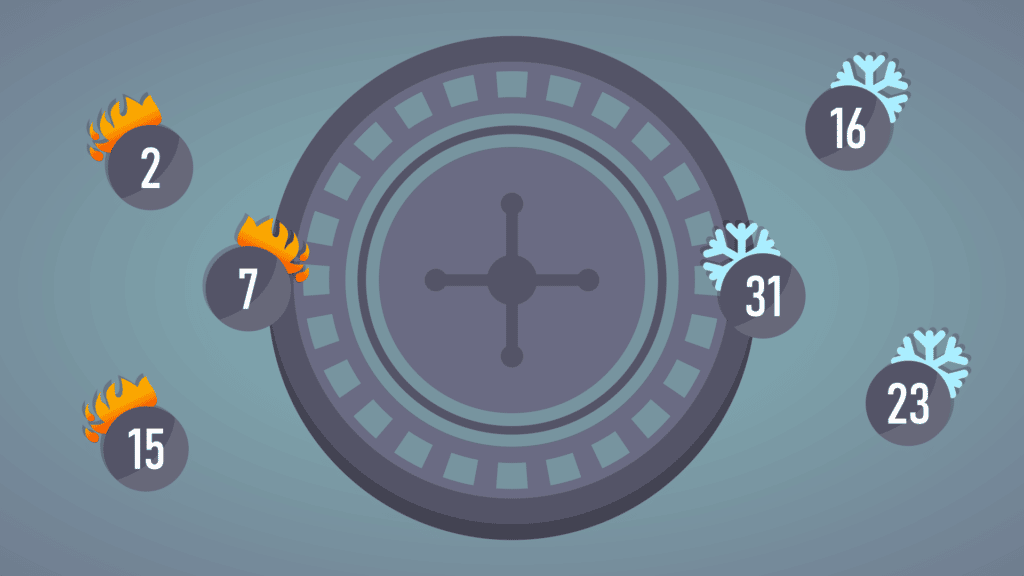Let's be honest, visiting a brick-and-mortar casino can sometimes turn into a real hassle. And while there are certainly many drawbacks, there’s a bit of a silver lining too: it’s usually much simpler to detect any shady behavior there compared to the online world. In today’s digital age, just about anyone can register a domain, set up a basic website, and potentially scam unsuspecting players. Given that this has happened before and remains a possibility, it raises an important question: could some online casinos be rigged?
This is precisely what our research team wanted to uncover, prompting us to dive deep into the investigation of online casinos' fairness. We reached out to players, journalists, and industry insiders, while also sifting through publicly accessible details released by regulatory bodies. So, keeping all this in mind, let’s explore the reality behind whether online casinos are indeed rigged or if this is merely a topic of concern.
Is Online Gambling as a Whole Rigged?
Essentially, beyond the flashy graphics and enticing bonuses that attract players, online casinos are businesses at their core. Their primary objective in a competitive market is to generate profits for their owners or shareholders.
In an ideal scenario, this would imply that these sites have a vested interest in maintaining fairness and transparency. More players generally equal more bets placed, which leads to increased profits. Moreover, if a player enjoys their experience, they’re likely to spread the word about the site to others, creating a beneficial cycle.
Unfortunately, we don't live in a perfect world. There are times when an operator might think, 'If I could manipulate the game just a little bit and pocket an extra 2% in revenue, why not?' This is a well-known reality, with even regulatory authorities acknowledging that it happens more often than we'd like.
To combat this troubling trend, governments have introduced regulations regarding fairness in online gaming. Theoretically, this seems fantastic. However, the reality is that many regulators fail to enforce these guidelines, and those that do often operate with only rudimentary anti-fraud measures. Legislation consistently fails to keep pace with the rapidly evolving gambling landscape, resulting in legal frameworks that are too vague for effective enforcement.
So, we have a clearer understanding of the landscape. Some online casinos are utilizing questionable jurisdictions to promote the use of manipulated games, even if such practices are illegal on paper. However, let’s take a step back for a moment. Is the entire concept of online gambling fundamentally flawed?

The Truth: How Online Casinos Operate
In a certain way, online casino games are rigged. You can determine this by looking at the Return to Player (RTP) percentages for many popular games. For instance, classic blackjack has an RTP of 99.2%. What does this even mean?
When simulating a game multiple times (over a million, in fact), players end up winning 99.2% of the time. The remaining 0.8% is the house's share. At first glance, this may seem like a negligible figure. However, if you consider a game that attracts, say, $10 million in traffic weekly, that’s an impressive chunk of change for the operator.
As harsh as it sounds, this is the required business model. Regulators and independent auditors deem these games fair, meaning as long as the percentages don’t shift, there's little anyone can do about it. In simpler terms, players implicitly agree to these terms when setting up their accounts.
What Are the Easiest Games to Rig?
Now that we’ve established that rigging is indeed a possibility, especially with the built-in odds generally favoring the house, we should consider which games are more prone to manipulation. We sought insights from seasoned players and community leaders, and their responses were rather eye-opening:
Poker
Most instances of rigging in online poker don’t originate directly from the poker rooms or casinos; rather, they often occur, particularly at lower stakes and informal settings. This typically involves groups of players who team up to join a poker room or tournament, a practice known as off-table collusion.
If you think this is some sort of magic trick, try opening the same live casino with a friend and sitting at the same table. You’ll see just how straightforward it can be. Of course, this is strictly against the rules and could lead to legal action from the casino.
Despite rules against it, players often share their hands with each other using a different platform. As a result, they can change their bets and effectively 'channel' funds among players at the table.
Roulette
Unlike poker tournaments, where rigging is often instigated by competitors, rigged online roulette problems stem mainly from malfunctioning software. Although collusion has been documented in offline play, roulette scams largely remain theoretical. Some of the iGaming developers we've interviewed pointed to a concept known as the Hot-Cold reactive hypothesis.
This theory suggests that games could be programmed to respond to Hot and Cold numbers in a manner that falsely maintains a sense of consistency. If you’ve had some experience with roulette, you’re likely aware of oddities like 5+ rounds in the Small Series that occasionally pop up. While too much inconsistency raises alarms, too much consistency is also a cause for concern.

Arguments Supporting the Notion that Online Casinos Aren’t Rigged
Having examined the motivations for potential rigging within online casino games, you might be pondering why operators would be willing to pass up such illegal gains and opt to remain compliant with regulators. There could be several persuasive reasons for this:
- Reputation by Referral . When individuals endorse a casino, it’s often because they’ve walked away victorious. While winning can never be guaranteed, it’s comforting to know that success is possible. This kind of grassroots PR is vital, as word of mouth historically remains one of the most effective marketing strategies.
- Independent Assessments . Obtaining a verification stamp from a well-respected auditor like eCOGRA significantly enhances a casino's credibility. In many instances, operators may find it more practical to maintain fair practices because the value of a respected certification far outweighs the short-term gains of dishonesty.
- They Must Conform . While third-party audits might not be legally mandated or rigorous, governmental regulators certainly are. Similar to iGaming testing labs, an official government license represents one of the highest forms of validation an online casino can secure. The risk of exposure or driving away potential players isn’t worth it.
- Broader Public Relations . Have you ever stopped to consider why casinos frequently post images of significant wins or why sportsbooks share big payout slips on social platforms? It’s all part of a strategy to assure the public of their legitimacy in the iGaming realm and to highlight the possibility of winning. If no one were to win, the player base would diminish, draining the financial resources available for the house.
Nevertheless, this doesn't excuse online casinos from acting irresponsibly. They hold a responsibility to invest in secure systems to prevent cheating, botting, or conspicuous collusion. Looking into a site's history is a great way to discern whether they actually uphold their claims.
The Role of Deceptive Advertising and Manipulative Strategies – Rigged or Not?
When we discuss rigged online casinos, many of us often think immediately of hacks, manipulated software, and tech-related trickery. However, not much consideration is given to the issues surrounding deceptive advertising and the exploitation of celebrity winnings as promotional strategies .
This trend has taken off in the last five or so years, where streamers on platforms like Twitch are offered huge sums to promote casinos. One streamer disclosed that a site promised him $30,000 per hour just to play a rigged live casino game, which came with inflated bonuses and uneveiled winning sequences.
Sadly, this is not the norm for average players. They are still up against the same uneven odds, making it a quintessential case of misleading marketing tactics. The strategy revolves around leveraging the psychological impact of perceived wins alongside personalized bonus codes to entice new players. It’s important not to be fooled by videos showcasing consecutive wins or players who appear overly lucky – this essentially represents a form of subtle rigging.
How Casino Fraud Occurs & Noteworthy Incidents
Nowadays, many believe that rigged software is no longer the predominant form of online casino fraud. Most casinos utilize games from respected developers, making it challenging to alter the code significantly. Instead, insider information and affiliate marketing present more of a risk. Nevertheless, individual casinos retain control over many other elements on their platforms.
This scenario opens up numerous opportunities for financial manipulation. One of the widespread methods of fraud, interestingly enough, is entirely legal. Operators are well aware that very few players actually read through the Terms and Conditions, and they often embed outrageous clauses or obscure the negative aspects within convoluted legal language. Because players have accepted the T&Cs, they find themselves powerless when their funds are restricted.
Payment delays and falsely claimed security concerns are additional common tactics that can tilt the scales in favor of the house. Customer support might inform players that their transaction is 'pending processing' or simply cease communication altogether. Alternatively, they might claim they’ve detected suspicious activity without any detailed clarification.

The Absolute Poker Scandal of 2007
Among the most notorious incidents in the annals of rigged casino games is the case of Absolutepoker.com. In the mid-2000s, this site was one of the most popular in the United States and frequently hosted large tournaments. Operating from Canada and licensed by the Kahnawake Gaming Commission, a body known for being one of the first to issue online gambling licenses, everything appeared above board initially.
This was also the impression of Marco Johnson, a 21-year-old poker player. He signed up for a Hold’em tournament that promised a grand prize of $30,000 for the champion. Given the reasonable buy-in, he was curious to test his skills against other players.
After a run of good fortune and favorable strategies, he found himself making it to the final table, which was more than he’d anticipated, ultimately finishing in second place. However, he noticed something odd about the number of misfortunes and strange hands dealt at that table.
To uncover the truth, Johnson reached out to AbsolutePoker, requesting a record of his hand history from the tournament. He had a hunch but didn’t expect much of a reply. AbsolutePoker did respond, albeit not with the records he sought. Instead, a staff member sent him an Excel file that contained details of every hand played during the tournament, along with player logs and even their IP addresses. This was either a major oversight by the staff or an intentional leak.
Intrigued by the unusual patterns, Marco delved into the data analytics. It didn't take long for him to uncover something remarkable: the player known as Potripper was making decisions that seemed irrational but miraculously led to frequent victories. Compounding the mystery, the player logs revealed a ghostly figure, an unseen participant tagged as ID #363, consistently lurking during Potripper's triumphs.
Upon further investigation, it was revealed that this enigmatic player was none other than Scott Tom, co-owner of AbsolutePoker, while Potripper turned out to be a staff member at the same site. As a result of these findings, it was conclusively determined that AbsolutePoker had orchestrated a massive scam, swindling its users for nearly $1 million.
Understanding Randomness in Casino Gaming
The foundation of online casino gaming lies in its inherent randomness. Each game utilizes a sophisticated computer algorithm designed to randomly select outcomes from a vast array of possibilities. This process is devoid of any inclination towards favoring specific players or determining winners; it operates through something known as a Random Number Generator (RNG), which is essential for the gameplay of blackjack, poker, slots, and all other games.
To ensure fairness, an RNG undergoes rigorous testing through simulated gameplay, where millions of rounds are played out artificially. Only through this extensive testing can an accurate Return to Player (RTP) rate be established. Cybercriminals often target the RNG segment of a game's code, typically breaching the defenses at the supplier’s facilities.
This underlines the importance of engaging only with licensed and secured online casinos. These establishments are held to high security protocols through strict legal and ethical obligations. It benefits everyone involved: casinos can expand their operations while players gain peace of mind, knowing they have a legitimate shot at winning.

